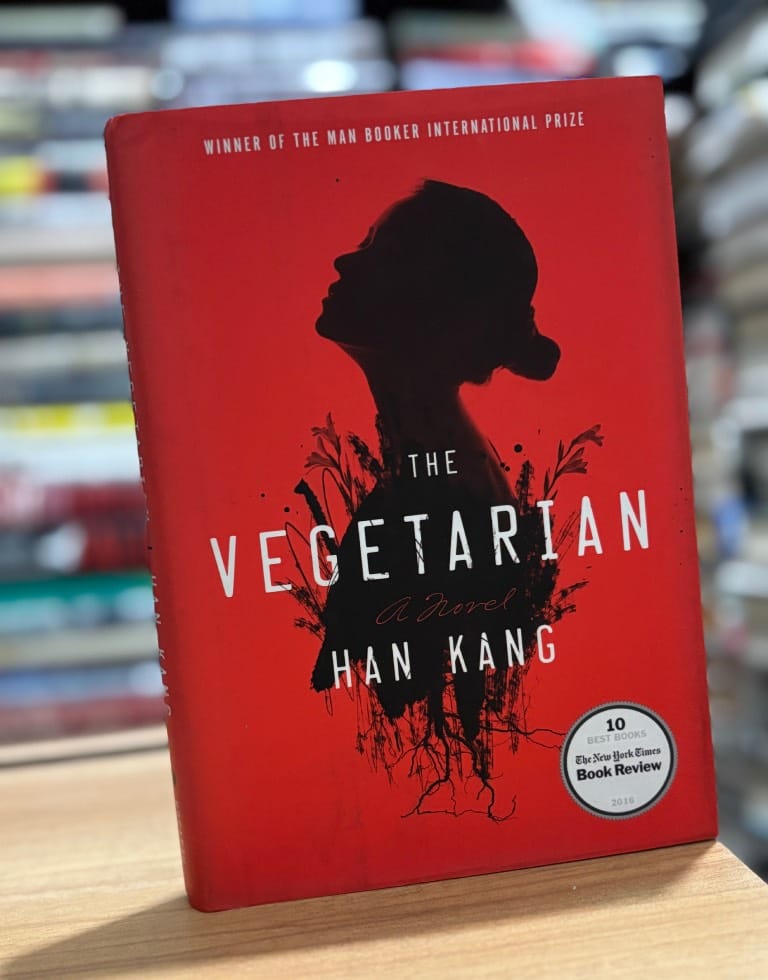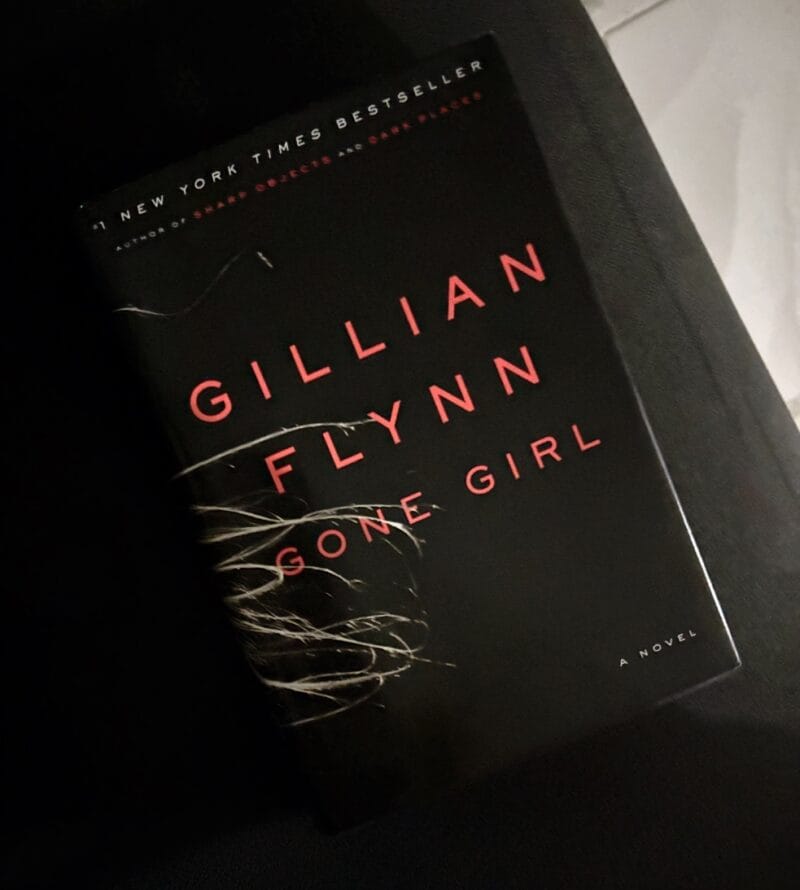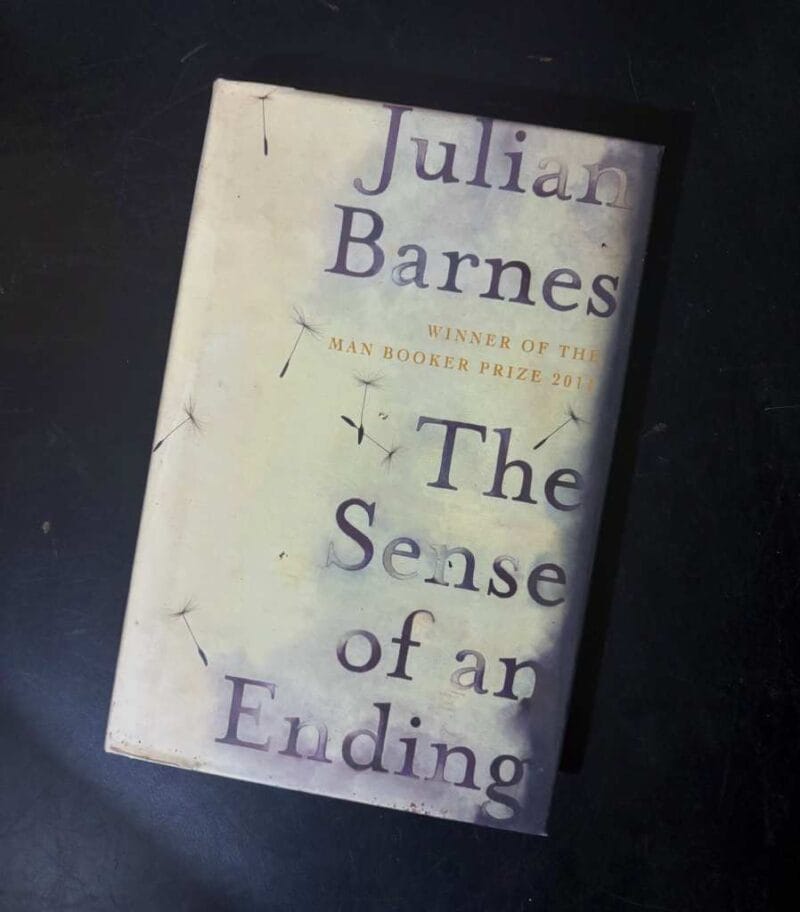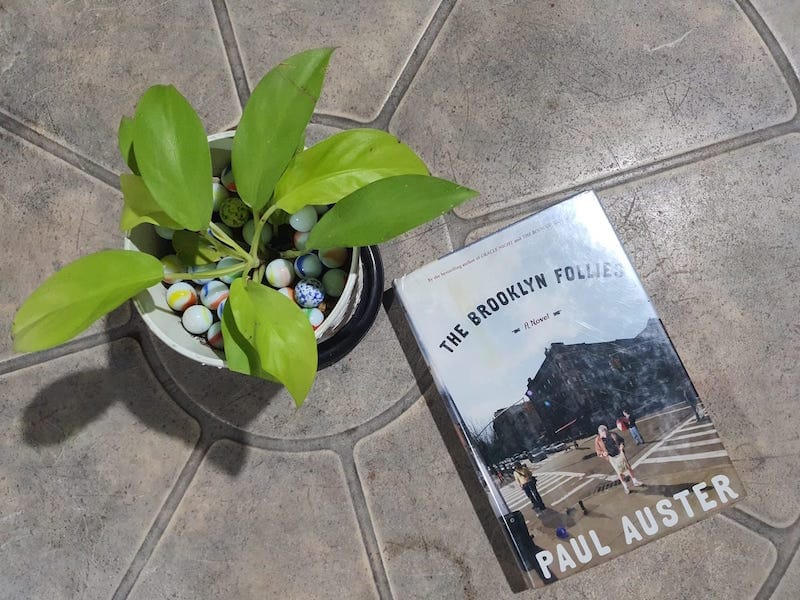Han Kang’s novel, The Vegetarian (2007), offers a unique exploration of an individual’s rebellion against conventional life in South Korea. This thought-provoking novel tells the story of Yeong-hye, a woman whose decision to stop eating meat acts as a catalyst for a profound transformation. As traditional labels and roles begin to fray, the book powerfully examines how a single decision can unravel the fabric of identity and relationships.
Set against the backdrop of modern-day Seoul, The Vegetarian delves into themes of desire, autonomy, and defiance. With its sparse yet lyrical prose, Han presents a symbolic and haunting tale, where Yeong-hye’s journey is not merely about dietary choices but a deeper quest for self-liberation. The novel’s structure, divided into three interconnected parts, provides a comprehensive view of how Yeong-hye’s choices ripple through her family.
Han’s work raises questions about the limits of endurance and the nature of individuality. By transcending cultural boundaries, the novel pushes readers to examine their own lives and the forces that shape them. The Vegetarian does not offer clear answers but instead inspires deeper contemplation on the human condition, making it a must-read for those intrigued by the complexities of human behavior.
Brief Profile of Han Kang
Han Kang is a prominent figure in contemporary Korean literature, acclaimed for her profound narrative style and exploration of complex themes, which earned her international recognition, including prestigious awards such as the Man Booker International Prize in 2016. She was awarded the Nobel Prize in Literature in 2024.
Han was born in 1970 in Gwangju, South Korea. She grew up in a literary environment, as both her father, Han Seung-won, and brother, Han Dong-hoon, are established authors. Her exposure to literature from a young age played a significant role in shaping her career. She studied Korean literature at Yonsei University, which further developed her writing skills. Throughout her career, she has remained deeply connected to her roots in Korean literature, often drawing inspiration from her cultural background and personal experiences.
Following The Vegetarian, she authored Human Acts (2014) and The White Book (2016), which continued to establish her reputation as a leading South Korean author. Han’s writing style is characterized by its elegance, precision, and often understated intensity. She frequently explores the struggle between cultural expectations and personal desires, drawing readers into complex psychological exploration.
Plot Outline and Character Analysis

Yeong-hye, the protagonist of The Vegetarian, makes a sudden decision to stop eating meat, a choice that disrupts her seemingly ordinary life. The narrative unfolds through three interconnected parts, each delivered from the perspective of different characters closely related to her. The story navigates the evolving dynamics and consequences of Yeong-hye’s defiance.
Her transformation is a catalyst for examining the deeper psychological and emotional states of those around her, providing a multifaceted examination of personal and familial struggles. The novel uses its structure to examine identity and gender politics and encourages reflection on the weight of individual choices within a collective framework.
Analysis of Yeong-hye’s Transformation
Yeong-hye, as a central figure, is pivotal in showcasing individual transformation in the midst of rigid cultural traditions and society’s expectations. Her resolve to stop eating meat is more than a dietary choice; it’s a profound expression of autonomy.
Yeong-hye’s transformation mirrors a metamorphosis—echoing Kafkaesque sensibilities—which highlights her struggle with identity as she defies her husband, Mr. Cheong, and those around her. Her journey is marked by force-feeding attempts and a loss of consent, emphasizing the broader conflict between external control and self-determination.
Secondary Characters: Impact of Family Relationships
The supporting characters, notably her family members, significantly impact Yeong-hye’s life and the narrative’s trajectory. Her husband embodies patriarchal authority, treating her transformation not as an individual act of agency but as an affront to his own social standing. His preoccupation with her behavior’s impact on his reputation highlights his inability to see her beyond her role as a wife and a tool for his convenience.
Her brother-in-law’s fixation on Yeong-hye introduces an unsettling mix of artistic obsession and desire, complicating the narrative further. His fascination reduces her to a medium for his creative ambitions, stripping her of agency. This dynamic exposes the exploitative tendencies of the male gaze, highlighting how she becomes a vessel for his artistic pursuits.
In-hye, Yeong-hye’s sister, provides a more complex relationship dynamic. Though depicted as responsible and rational, In-hye embodies conflicting emotions of duty and compassion toward Yeong-hye. This familial tension exposes layers of desire, obsession, and betrayal, interactions that illustrate how marriage and family ties can impose restrictions while offering fleeting moments of connection.
Complex Themes of The Vegetarian
Vegetarianism: Beyond the Literal and into Symbolic Interpretation
The choice of vegetarianism in The Vegetarian extends beyond the personal. Yeong-hye’s decision to stop eating meat symbolizes a profound rejection of society’s constraints upon her. It reflects a desire to escape violence associated with traditional consumption patterns on which, vegetarianism serves as a metaphor for her inner struggles to reclaim power over her life.
Yeong-hye’s abstinence from meat could also be interpreted as a form of rebellion against entrenched rules by asserting personal liberation. Her vegetarianism communicates a silent protest against pervasive control mechanisms in her own life, portraying her quest for self-identity amidst a familial and cultural demands for conformity.
Yeong-hye’s defiance against eating meat becomes a larger commentary on resisting oppressive practices, prescribed gender roles, and taboos. Her choices reflect her struggle for control over her own life, despite ongoing conflict between individual desires and external conflicts, providing heft to Yeong-hye’s resistance as being both deeply personal and socially significant.
Portrayal of Mental Illness
Mental illness is intricately woven into the fabric of Yeong-hye’s tumultuous journey, both explicitly and implicitly. Her seemingly irrational actions, often hastily labeled as madness by those around her, serve as manifestations of deeper psychological disturbances—the novel delicately unpacks these behaviors, not as isolated events of irrationality, but as expressions of a mind that has been profoundly shaped and destabilized by trauma.
Han does not simply offer a portrayal of mental illness, but rather a profound critique of how it is perceived and treated within rigid social structures. The responses to Yeong-hye’s actions—dismissal, outrage, and incomprehension—highlight not just the stigma surrounding mental illness, but also the oppressive forces that marginalize those who defy expected behavior.
Yeong-hye’s retreat from the physical world can be seen less as madness, and more as an attempt to reclaim control in an environment that denies her individuality. Her increasing withdrawal could symbolize a radical rebellion, a refusal to conform to a life defined by external demands.
Moreover, the novel does not limit its examination of mental illness to Yeong-hye alone—the psychological toll extends to those around her, as they too grapple with their own inner conflicts in the wake of her transformation. In-hye, her sister, is consumed by guilt and helplessness, watching someone she loves slip away while feeling powerless to intervene. Yeong-hye’s husband eventually shifts from obsession to frustration, and finally to emotional detachment, revealing his own psychological fragility.
Narrative Structure and Literary Style
The novel employs a distinctive narrative technique by using multiple perspectives. By dividing the story into three parts, each narrated by a different character, the shifting point of view provides holistic exploration of Yeong-hye’s transformation and the impact on those around her—an approach that would otherwise remain enigmatic if presented through a single narrator.
Introducing different perspectives helps convey the complexities and surreal layers of the narrative, making the story incredibly visceral and engaging. Each narrator brings their own biases and interpretations to the unfolding plot, revealing subjective realities and demonstrating how personal viewpoints can influence and shape perceptions of events.
Linguistic and Stylistic Elements
Both poetic and succinct, Han’s prose frequently utilizes vivid imagery set with a haunting tone, which effectively reflects the book’s dark themes. The writing teeters between the surreal and the everyday, crafting scenes that are at once dream-like and intensely visceral. The author’s language evokes the surreal nature of dreams and creates a horror story atmosphere in an otherwise ordinary setting.
The concise prose enhances the weight of each word, compelling readers to linger on the vivid details that punctuate the narrative. Symbolic richness and restrained yet powerful descriptions draw attention to the fragility of human life, underpinning the chilling undercurrents of the book.
Symbolism and Motifs Throughout the Book
Symbolism and motifs play a significant role in conveying The Vegetarian’s deeper meanings. Recurring symbols such as plants and nature parallel the protagonist’s transformation and her detachment from social pressures. These motifs highlights the novel’s Kafkaesque elements by introducing parables about identity and freedom, enhancing the sense of surreal horror.
Motifs involving carnality versus austerity also magnify the tension between natural urges and imposed restrictions. Through its symbolic language, The Vegetarian offers a profound reflection on the turmoil inherent in humanity’s existence and our individual desires for personal transcendence.
Selected Passage with Analysis
Yeong-he turned her head and stared blankly at In-hye, as though the latter were not her sister but a complete stranger. After a while, the question came. “Why, is it such a bad thing to die?”
Page 162, The Vegetarian by Han Kang
In this passage, Yeong-he’s blank stare and detached response to her sister In-hye indicate a profound psychological disconnection. Yeong-he's dissociation from her own identity and her family suggests an unraveling of her mental state, where death is no longer feared but considered a neutral or even desirable state. Her rhetorical question reflects a nihilistic detachment from life, illustrating her complete alienation from society, her family, and her own physical being.
Thematically, the passage touches on identity loss and existential freedom. Yeong-he’s transformation into someone who eschews human concerns, including familial obligations, is central to the novel’s exploration of the body as a site of both oppression and transcendence. Her rejection of life itself poses a challenge to conventional values, especially those related to female roles in family and society.
Han Kang’s minimalist language amplifies the emotional intensity of the moment, with the bluntness of the question revealing the starkness of Yeong-he’s internal world. This interaction becomes pivotal as it forces In-hye to confront her own complicity in Yeong-he’s isolation, deepening the novel’s exploration of personal and relational fractures.
Further Reading
Han Kang Wins Man Booker International Prize for Fiction With ‘The Vegetarian’ by Alexandra Alter, The New York Times
Han Kang and the Complexity of Translation by Jiayang Fan, The New Yorker
How the bestseller ‘The Vegetarian,’ translated from Han Kang’s original, caused an uproar in South Korea by Charse Yun, Los Angeles Times
Han Kang, Whose ‘The Vegetarian’ Was Made Into a Film, Wins Nobel Prize for Literature by Georg Szalai, The Hollywood Reporter




